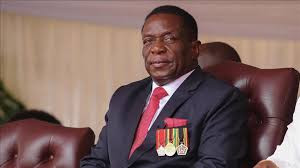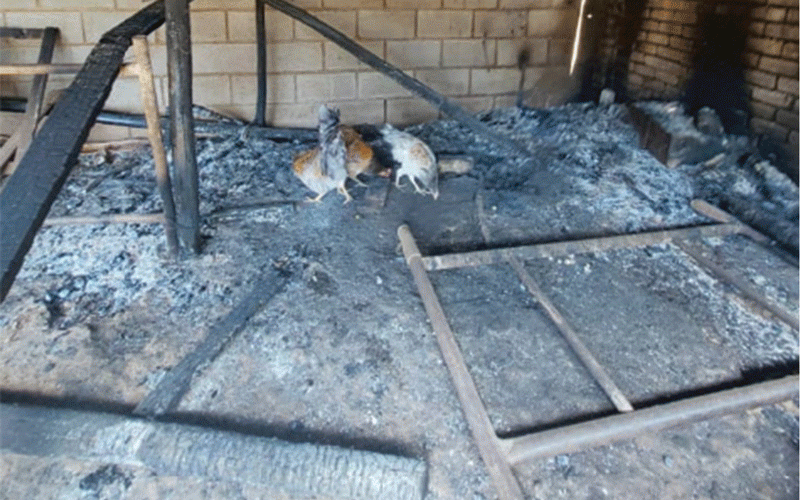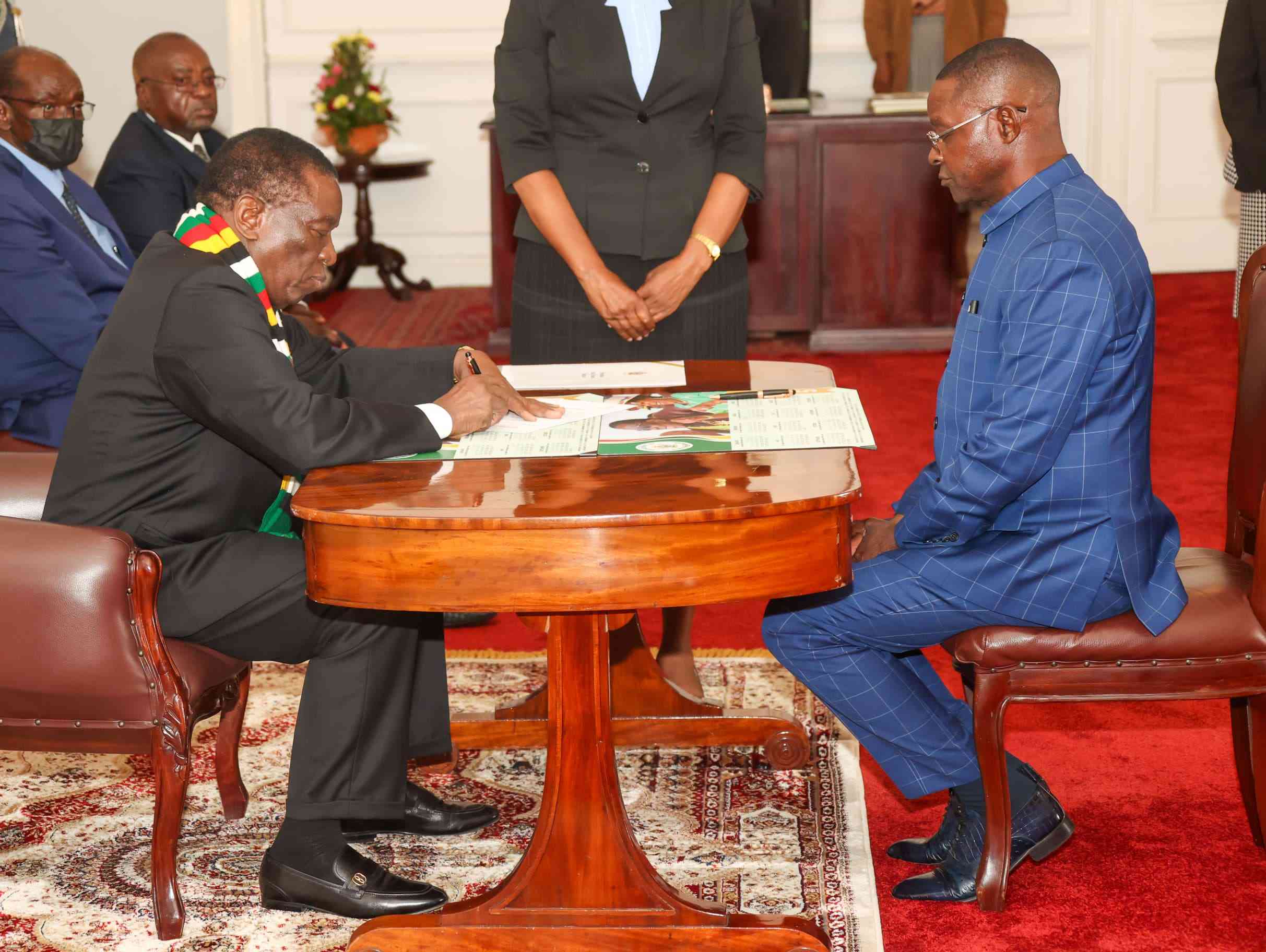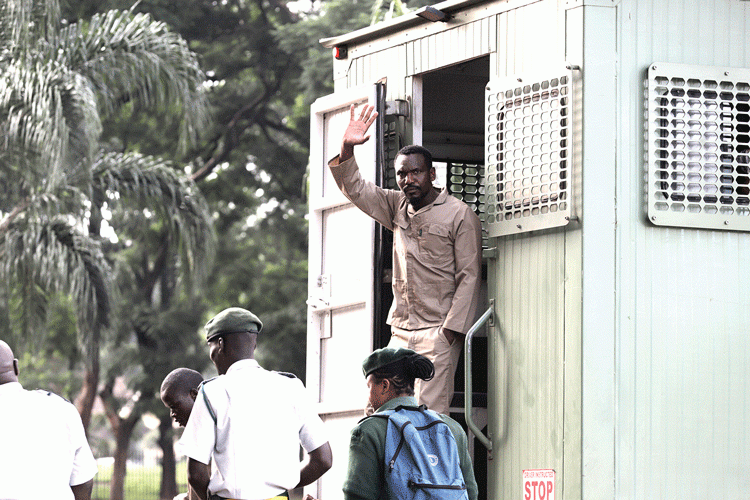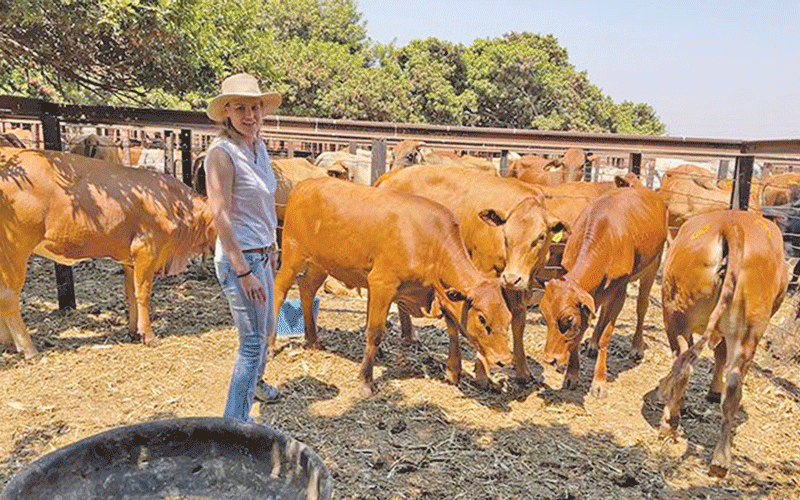It is worrying that Zimbabweans have developed disillusionment and a culture of becoming accustomed to the prevailing entrenched and deplorable mismanagement of public affairs, including intolerable, and sometimes unpardonable and unforgiveable, misdeeds by those entrusted with public duty or the government; what some have aptly called “normalising the abnormal”.
By Rekai Rusinga
One brazenly manifest indicator of this mismanagement of public affairs is rampant corruption. It has been both petty and grand. It is regrettable that corruption has virtually become a way of life and a normal way of doing things in Zimbabwe. No longer is it a matter that evokes moral outrage. Zimbabweans acknowledge that corruption is widespread, but they feel helpless and in the process have become accomplices; they now say ‘ndiyo nyika yacho’.
But, when a fish rots, it starts from the head. If there is one thing that was very clear and on the basis of which former President Robert Mugabe can be objectively criticised, it is his insincerity to deal with corruption.
Mugabe would vehemently speak against corruption on a number of fora and acknowledge that his ministers were involved in corruption.
He would sternly condemn corruption and in one of his birthday interviews, speaking about corruption amongst ministers, he said: “I don’t want to work with people who are not honest”.
Keep Reading
- Chamisa under fire over US$120K donation
- Mavhunga puts DeMbare into Chibuku quarterfinals
- Pension funds bet on Cabora Bassa oilfields
- Councils defy govt fire tender directive
But, such statements were not followed by the expected action.
This rhetoric, indeed, helped to some extent. Some guy said to me, in terms of corruption, it was the ministers, excluding the presidium, who are corrupt and needed to be dealt with.
This exoneration of Mugabe was baffling given that it was in the capacity of Mugabe, as the appointing authority, to drop corrupt ministers from his Cabinet.
Mugabe’s lasting record of pardoning offenders dated back to the early post-independence period, starting with the Maize Scandal in which Kumbirai Kangai was implicated in 1982.
Cases of corruption continued, prompting Zanu PF to come up with the Leadership Code in 1984.
The code was, however, never implemented and the Willowgate Scandal become topical and evoked public outcry later in that same decade in 1987. Again, Mugabe pardoned the offenders.
The granting of amnesty to the corrupt continued with cases of corruption going nowhere beyond just being given widespread media coverage; you would read about it and it would end there.
Some even got to the point of arguing that corruption was the modus operandi of Zanu PF.
Perhaps, confirming Mugabe’s reluctance to deal with corruption, it has been reported that, on the verge of his retirement, he expressed grief over his betrayal by people he had protected.
In reference to a Zanu PF official, whose name was withheld, Mugabe is said to have said “…so this is what they have decided. X of all the people to do this to me. After all I have done to protect him, corruption issues raised against him and I have stood with him (my emphasis). Is this the same person I recently gave a lifeline and I pardoned him since 1983? Today he turns against me.”
To the extent that this is true, it is clear that Mugabe was unwilling to deal with corruption for the benefit of the majority, whom it gravely affected during his reign, despite his public condemnation of it and supposed intolerance.
Amongst the hotbeds of corruption is the Vehicle Inspection Department that issues drivers’ licences.
It has become obvious and acceptable that you can only get a licence after you have paid a bribe, no matter how competent you prove to be.
I, myself, failed the test for three times and although in my case it was clear that the failure was on account of incompetence, my instructor from the driving school told me on many occasions that: “Havakupi licence vakomana ava kana usina kuburitsa mari. When I failed for the second time he said: “Ndakakuudza kuti havakupe pasina mari. I told him I had clearly failed owing to my incompetence, for I hit the drum when reversing and he said “Haakusiye uchirovera kana wamupa mari.” This was true.
I witnessed as an examiner tipped-off some girl, as she was undergoing the driving test and I also know people who bribed to get licences. A lot, other licence holders can also attest to this.
Corruption at this important department of the government is not to be taken as a light issue.
What it means is that undeserving people are obtaining licences through bribery and the effects of this are evidenced in increased road carnage.
Unashamedly, corruption thrives at the VID despite very clear and visible anti-corruption messages, including one inscribed in bold and red: “If you have paid your instructor money to ensure a pass please retrieve it now because you have been thoroughly (my emphasis) conned”.
This is just but one example that I refer to because I was directly affected. Other cases include the notorious three-tier pricing system, and “money changers” on the streets, among many other cases.
Respecting matters of corruption, it is a good thing that Mnangagwa is now President in what has been termed “a new dispensation”.
He has, for quite some time, been vocal about fighting corruption. He continues to talk about his determination to fight corruption. It remains to be seen, if he will depart from the Mugabe way of doing things.
But, I for one did not welcome it, when in November 2016, at a time he was acting President, Mnangagwa indicated that government would set up special courts to deal with corruption cases in 2017.
It is common cause that the court system, compromised as it is, has failed to stem the commonplace unprecedented corruption that has for long been afflicting Zimbabwe.
Even the creation of the so-called “independent” anti-corruption commission, the Zimbabwe Anti-Corruption Commission, has not helped reduce the incidence of corruption in Zimbabwe.
Corruption continues unabated and is even on the rise. Some have actually contended that corruption seems to have intensified with the creation of the so-called independent anti-corruption commissions; the creation of the institution was the institutionalisation of corruption.
It is known that with the exception of a few cases, notably Korea which has been held as a model as countries that created independent commissions to fight corruption, and, arguably, Botswana in Africa, in most countries, particularly across Africa, anti-corruption commissions have clearly failed.
Something has, however, visibly happened with the coming into power of Mnangagwa.
From the time I became conscious about public affairs, people were bitter and complaining about former Local Government minister Ignatius Chombo’s alleged unprecedented corruption.
The unproven corruption allegations go well beyond what the former minister is currently being charged for.
Under the presidency of Mnangagwa, it is notable that someone believed to have been highly corrupt, along with many others, has been charged and prosecution is ongoing.
However, it remains to be seen how his matter will end. History has shown that such cases involving high ranking figures die natural deaths.
This is not to nail the unfortunate man down but merely to seek justice, where it is well deserved.
It is good the President has assigned every citizen the role to police in fighting corruption.
But, this is not sufficient. The question is: To whom should cases be reported? The question does not arise because there is no shortage of institutions but because of the severely degraded integrity of, and lost public trust and confidence in, such so-called institutions of integrity.
They became accomplices instead of dealing with the menace. They, therefore, raised the cost for all through fuelling more corruption and the salaries and allowances paid to the offenders manning them.
Going forward, it is important that anti-corruption efforts be well meant. They should be genuinely driven by the will to effectively deal with a scourge that has subjected the poor and ordinary people who are affected the most to untold suffering. Disguised anti-corruption efforts merely intended to appease the public or gain political mileage by creating a smokescreen are a serious indictment.
Rather than waste time pursuing corruption cases in the courts and having the guilty going scot-free at the end of it all, where there is incontrovertible evidence (which is admittedly difficult to come up with in some instances), offenders must simply be made to repay whatever they would have stolen.
That way society stands to benefit. Even where the guilty do not go scot-free, cases continue indefinitely in the courts, while the offender will be enjoying their ill-gotten wealth.
In addition to retribution in the form of paying back within a strict time-line, offenders must lose their jobs.
This would help detract potential offenders; one would certainly think twice before indulging in corruption.
It is indeed a reasonable expectation that by now, corruption at the VID, money changing corruption, and the corrupt three-tier pricing system, should have been dealt with.
These relatively easy to deal with areas should have been quick-wins for the incumbent regime.
What remains factual is that, with political will, corruption could be easily reduced significantly. All that is needed is for authorities to walk the talk and act on reported cases.
The remedial action should be undertaken through effective anti-corruption measures, not merely symbolic measures that do not ultimately lead anywhere as has happened to date.
The sincerity of the incumbent government to deal with corruption will be tested by the manner in which known pending cases with incontrovertible evidence available are going to be concluded and the extension of the anti-corruption net to fellow comrades and friends who are known to have committed acts of corruption.
Hitherto, anti-corruption measures have widely been seen as a matter of political expediency with investigations being used as weapons against known and perceived political rivals, particularly in the context of the vicious factional fights that bedevilled Zanu PF before “operation restore legacy”.
Those who were “in the right basket” are believed to have remained “sacred cows”.
Some have also characterised the anti-corruption crusade as “tribalistic”. This criticism needs attention.
Time will judge the incumbent regime. The people of Zimbabwe should keep looking on!
Rekai Rusinga is a concerned citizen.Email:rusingar@gmail.com

